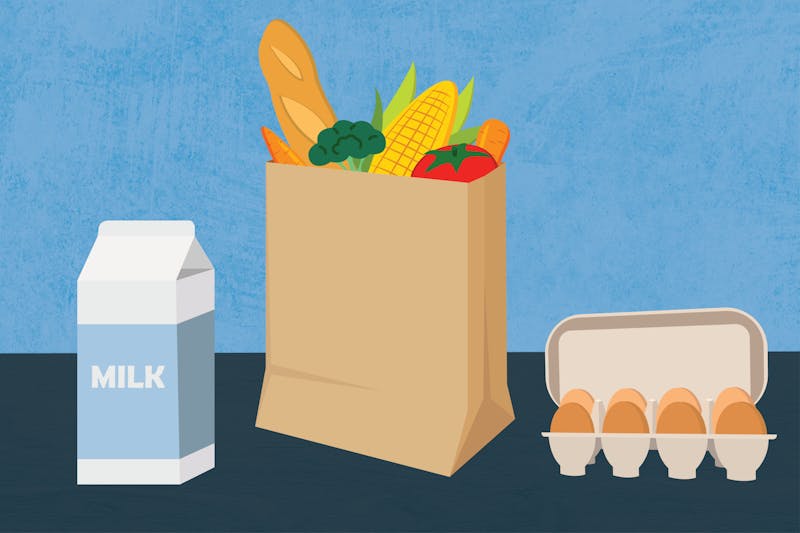
This week, UNC is partnering with the nonprofit Benefits Data Trust to help eligible students gain access to the USDA Food and Nutrition Service’s Supplemental Nutrition Assistance Program through text message and email alerts. SNAP gives qualifying students a monthly stipend for groceries.
Data from FAFSA is used to determine eligibility for Food and Nutrition Service programs. Associate Provost and Director of the Office of Scholarships and Student Aid Jackie Copeland said in an email statement that students who apply and qualify can expect to receive an extra $100 per month for groceries.
“The program aims to help recipients afford food to help improve their overall health and well-being,” Copeland said. “Benefits are accepted at a variety of locations, even some local farmer’s markets.”
During the COVID-19 pandemic, the University used information from FAFSA to contact approximately 19,000 UNC students about expanded eligibility for FNS. Copeland said over 73 percent of recipients opened the emails, while about nine percent clicked the links to applications.
Copeland said that Benefits Data Trust North Carolina Benefits Center will provide over-the-phone assistance to approximately 6,000 UNC students who have been identified as eligible for the program through FAFSA.
“I believe a major barrier is the application process, so we are hoping eligible students will use the contact center to help them break down that barrier,” Copeland said. “We also want students to understand that these are benefits they qualify for and deserve to receive. There shouldn’t be a stigma around these benefits.”
The program is one step toward addressing food insecurity among students. Several clubs and organizations on campus are also working to address the issue.
One of these organizations is Nutrition Coalition, a student group out of the Gillings School of Global Public Health. The coalition started CJ’s Cupboard, a food pantry located on campus.
“You can kind of eat on campus or eat on Franklin, but that’s not really true grocery shopping,” Rebecca Scothorn, co-president of Nutrition Coalition, said.
